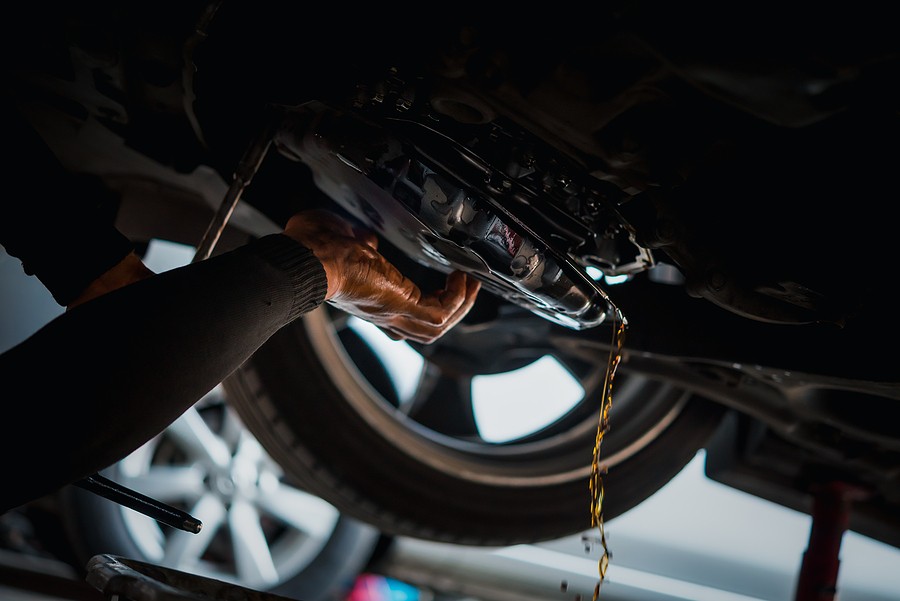Your vehicle's transmission is one of those parts of your car you will never see unless something is wrong with it. But as the gears and engine work together to move you from place to place, this seemingly invisible piece has a big effect on how smoothly your car runs.
If you're experiencing problems with your car, it can be difficult to know whether the issue is with the transmission or some other vehicle component. This article will discuss how to tell if you're having transmission problems and what to do about them.
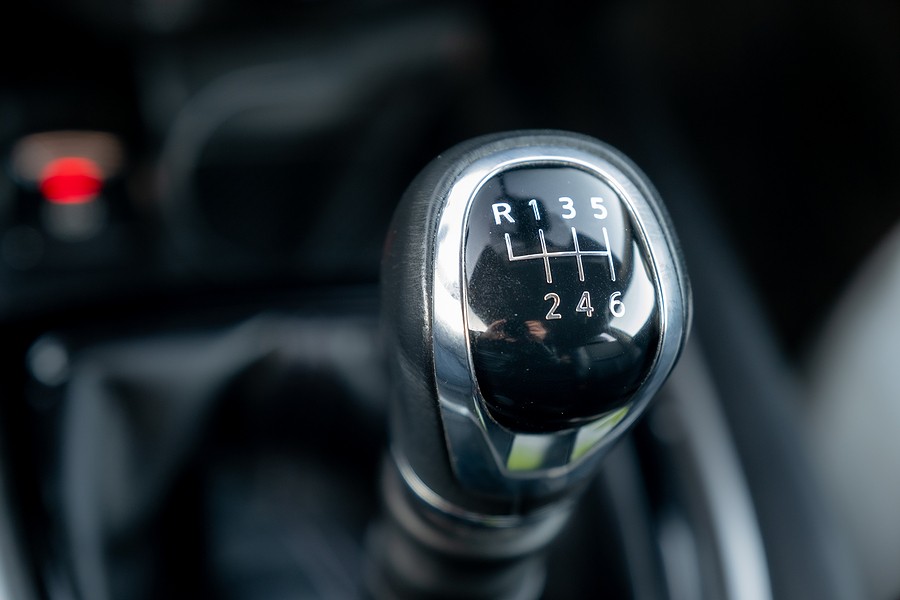
What is the transmission, and what does it do?
The transmission is part of the car's drivetrain, which is responsible for transferring power from the engine to the wheels. This movement allows your car to move forward, backward or stationary, with the brakes engaged. Your vehicle has one main transmission that works with other gears and components to create smooth shifts.
What are the different transmission types?
The transmission is either manual or automatic, depending on how you'd like to shift gears. Manual transmission allows the car driver to select gear changes, while an automatic transmission does it for you. Some vehicles have different options for what type of drivetrain they use (for example, front-wheel drive and rear-wheel drive), but transmission is a single unit in most cases.

How to Know If You're Having Transmission Problems With Your Car?
Since the transmission is a vital component in your vehicle, it's important to know the symptoms of a bad transmission so you can have it replaced before it completely fails. Fortunately, several symptoms signal trouble with the transmission. If you're experiencing any of the symptoms listed below, take your car to a mechanic to diagnose and repair it.
Symptoms of a Bad Transmission
#1 Problems starting the car
If your engine is turning over, but it sounds like you're having a hard time getting it started, there could be problems with your transmission. Whether the problem is mechanical or electrical, this means that there's an issue somewhere on the car, and you should have it checked as soon as possible.
#2 Slipping gears
Slipping gears can be a sign of several issues, but the most common one is that your transmission is going bad. When you press down on the gas pedal while driving, it should respond immediately by moving your vehicle forward. If, However, ifere's a delay in what you're expecting to hear or feel when accelerating, this could indicate slipping gears.
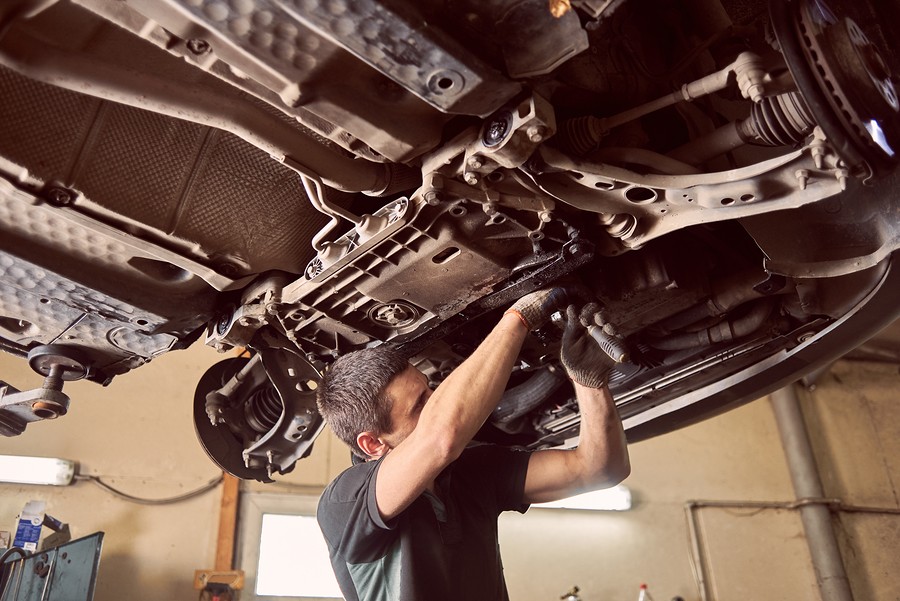
#3 Problems slowing down/stopping
If problems are stopping or slowing down your car when coming to a stop, this could mean that your car's transmission isn't working properly. This can be caused by fluid leaks around the car, which indicates that the transmission issue has developed into something more serious. It's often best to get any symptoms checked right away.
#4 Hesitation when accelerating
If your car takes a significant amount of time to pick up speed after you've given it gas, this could be a symptom of transmission problems. If the issue is mechanical, you should see your mechanic immediately to get it fixed. However, if it's an electrical problem, you may be able to fix the issue yourself by having someone help guide you through the steps.
#5 Shift shock
The shift shock symptoms are often associated with an internal breakage in the torque converter, leading directly to total transmission failure. When driving forward and then shifting into reverse or vice versa, there will likely be a pang that feels like somebody kicked the back of your seat. It is normal; however, if the symptoms are more severe, it could signify larger problems brewing.
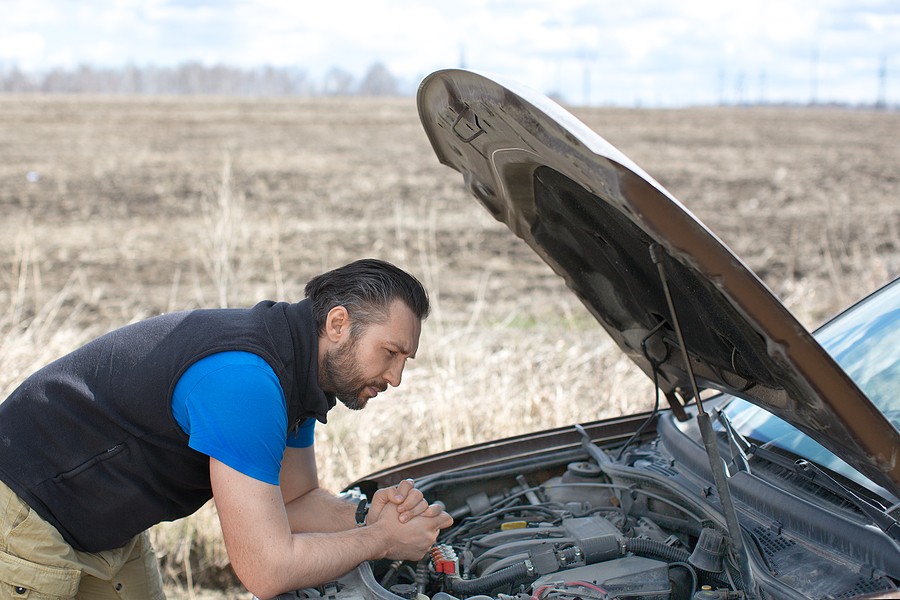
#6 Noisy gears
If your car's transmission has symptoms that include noisy gears that grind when shifting into reverse or drive, you may have an issue with your vehicle. If there is noise, it can indicate any number of problems, including internal component failure and the need to re-tight certain components. Therefore, it's important to get it checked right away so that you can figure out what needs to be done to fix it.
#7 Clunking when stopping/changing direction
Like symptoms related to hesitation when accelerating, symptoms associated with a clunking sound like something kicked back during gear changes in either forward or. The symptoms become more severe when changing direction, which can indicate a problem with the car's transmission.
#8 Service lights on the dashboard
When there is a malfunction or fluid leak of any kind, your car's warning system will let you know something is going wrong somewhere within the power train.
Whether it's a service light on your dashboard telling you that everything from your engine to transmission needs to be checked out soon or an audible alarm going off when accelerating, this is a good indicator that you should have the symptoms looked at right away.
This is especially important if it suddenly pops up because it could mean that the symptoms are getting worse, and it's time for a complete replacement of your transmission before more damage occurs.
#9 Slipping in and out of gear
The symptoms of slipping gears occur when driving, and the car will disengage from the transmission. A physical issue can cause this transmission or an electrical problem that needs to be resolved as soon as possible .
It's important to get this checked out sooner rather than later to prevent further damage.
#10 Vibrating when accelerating
This symptom often indicates torque converter problems, suggesting symptoms such as hesitation during acceleration and slipping gears. If this happens, it may be time for your vehicle's transmission to need replacing.
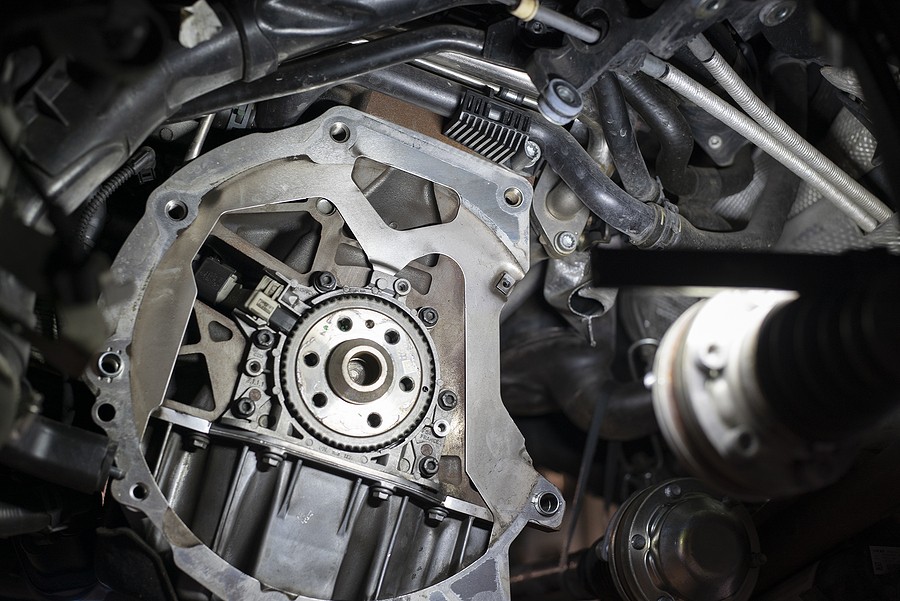
What are the common transmission repair options?
Transmission repair options differ significantly depending on the root of the problem. In general, here are the common transmission repair options along with the expected repair costs:
#1 Mechanical issues
Re-tightening certain parts within the transmission can often fix mechanical issues. This is typically the least expensive option. However, the symptoms can be intermittent, making it more challenging to diagnose.
Re-tightening certain parts of the transmission are usually the least expensive option. For instance, expect to pay about $90 for a tightening of grind gears symptom. If symptoms are intermittent, it can make them more challenging to diagnose; however, this is the best option for those who want to fix it themselves or don't have much wiggle room with their transmission repair budget.
#2 Replace transmission fluid and filters issues
This is often an effective way to address symptoms of contamination in the system; however, if there are more serious symptoms like slipping gears or clunking, this is not a long-term solution.
In some cases, bad transmission symptoms will go away after replacing the fluid and filters, especially if it's a small amount of dirt or foreign material causing them. This is the best option for those who experience intermittent symptoms due to contaminants in the system that can be removed with proper transmission fluid levels.
If you plan to replace the transmission fluid and filters, expect to pay between $150 and $300 depending on how much fluid you need to replace.
#3 Replace transmission
In some cases, bad transmission symptoms will go away after replacing the fluid and filters, especially if it's a small amount of dirt or foreign material causing them. However, this is not a long-term solution if symptoms are more serious, like slipping gears or clunking.
If symptoms are more serious, you'll need to plan on replacing the transmission. It will cost between $1,400 and $3,000 for parts and labor, depending on your vehicle's make and model.
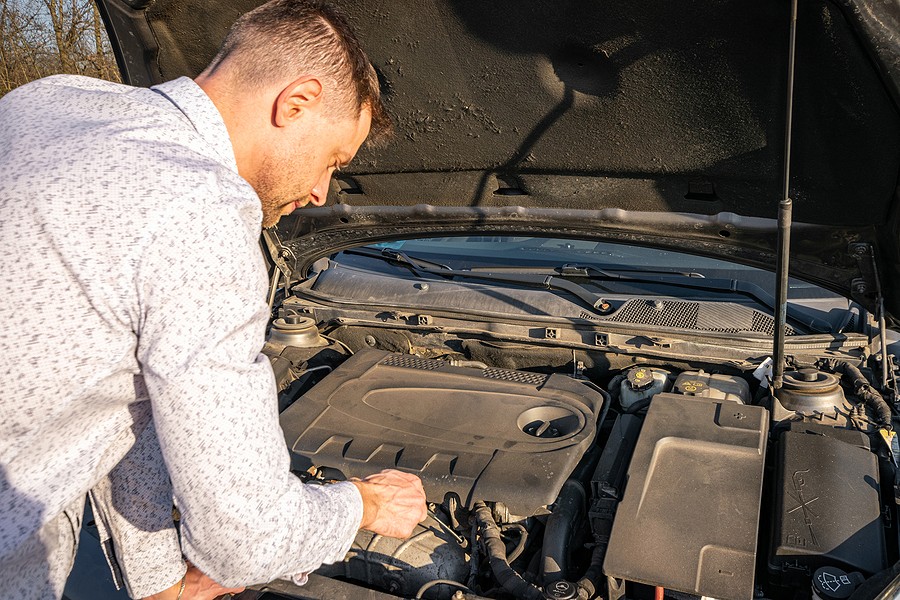
#4 Perform full replacement
This is typically an option for those who have more severe symptoms and likely need a rebuild. Inspect the vacuum modulator, torque converter, or valve body may be necessary to confirm which symptoms you have.
In some cases, bad transmission symptoms will go away after replacing the fluid and filters, especially if it's a small amount of dirt or foreign material causing them . However, symptoms are typically more serious symptoms like slipping gears or clunking.
If symptoms are more serious, you'll need to plan on replacing the transmission. Depending on your vehicle's make and model, it will cost between $2,000 – $4,000 for parts and labor.
#5 Perform rebuild
This is an effective long-term option for those with more severe symptoms and requires rebuilding.
If symptoms are more serious, you'll need to plan on replacing the transmission. It will cost between $2,400 – $4,500 for parts and labor, depending on your vehicle's make and model.
Disassembly is also necessary to inspect the components, which may necessitate rebuilding.
What to do if you think your transmission is faulty?
If symptoms are intermittent, it can make them more challenging to diagnose. Start by having the fluid level tested and replaced if needed.
This is typically the least expensive option. However, the symptoms can be intermittent, making it more challenging to diagnose.
Re-tightening certain parts of the transmission are usually the least expensive option. For instance, expect to pay about $90 for tightening grind gears symptoms. Unfortunately, symptoms are typically more serious, like slipping gears or clunking, which is not a long-term solution.

If symptoms are more serious, you'll need to plan on replacing the transmission. It will cost between $1,400 – $3,000 for parts and labor, depending on your vehicle's make and model.
This is an effective long-term option for those with more severe symptoms and requires rebuilding. However, the symptoms can be intermittent, making it more challenging to diagnose. Symptoms typically fall into the category of slipping gears or clunking, and it is not a long-term solution.
If symptoms are more serious, you'll need to plan on replacing the transmission. Depending on your vehicle's make and model, it will cost between $2,000 – $4,000 for parts and labor.
How to prevent transmission problems from happening in the first place?
Prevention is much easier than repair. Therefore, it's important for you as a driver to implement some of the following tips and tricks to expand the lifetime of your transmission and prevent its premature damages:
- Do not stop or accelerate suddenly – do you avoid that abrupt on-off throttle.
- Avoid driving at high speeds for an extended period. If you've ever had the experience of cruising down I-70 at 85 mph with your cruise control set, then you already know how fast acceleration and deceleration can take a toll on your transmission.
- Use low gears – Keep your car in low gear when going from point A to point B. This will help you prevent unnecessary transmission use and save on fuel costs.
- Avoid turning off your engine during long stops – If you find yourself at a stoplight for more than 10 seconds, then you should leave the engine running. This can help reduce wear and tear on the parts of your transmission that are most susceptible to damage, such as seals and bushings.
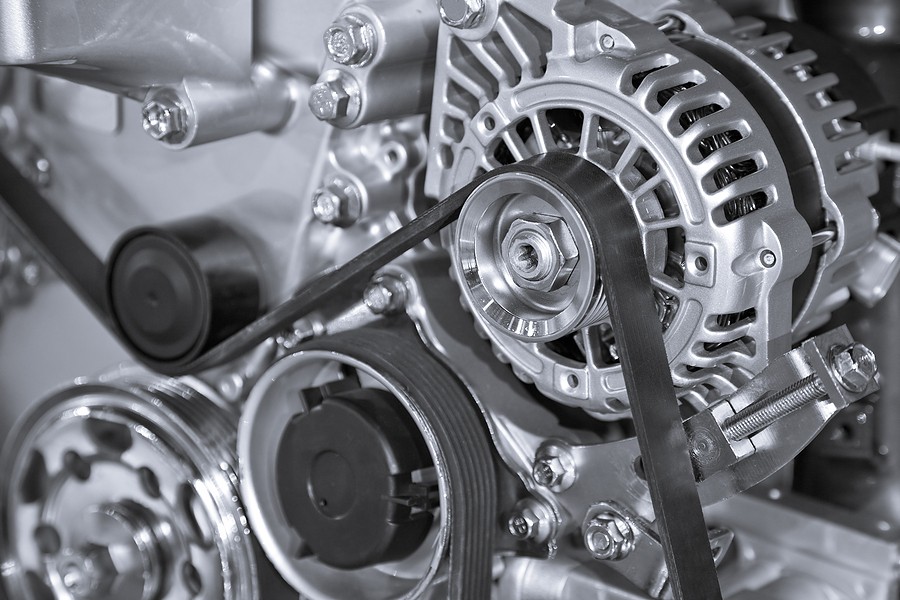
Is it worth fixing my transmission problems?
The short answer is yes.
Getting your transmission diagnosed by a professional can help you determine which symptoms you're experiencing and how severe they are. If there isn't a lot of wear and tear on the parts, it might be something minor that can be taken care of with a part replacement or tightening rather than an entire transmission replacement.
Can I sell my car if it has transmission problems?
Most definitely! Cash Cars Buyer purchases faulty cars for cash. So if your vehicle has major transmission problems, don't worry because we got you!
All you have to do is call us at (773) 791-4363! We will generate an instant offer within 30 seconds only and offer you the top dollars up to $15,000 if you have the right vehicle!
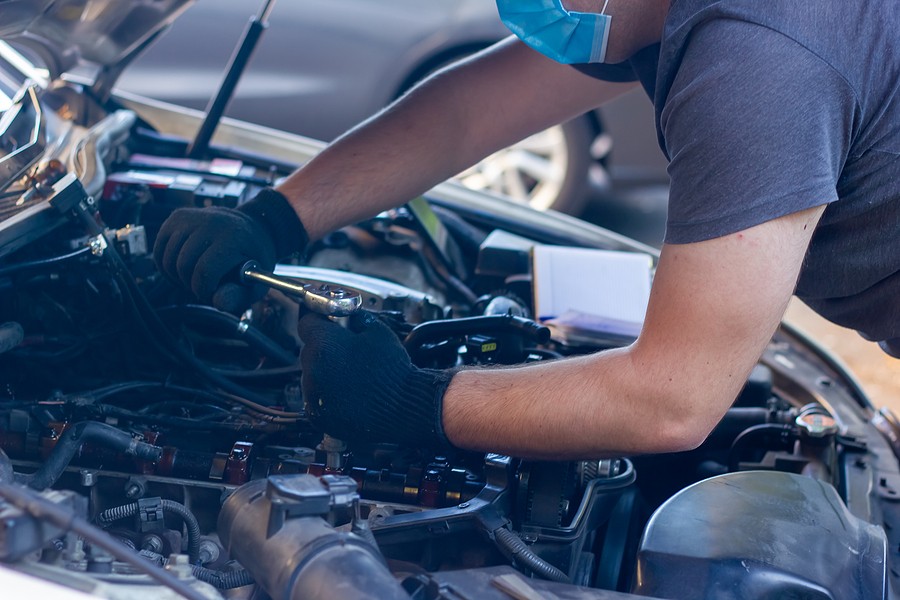
Conclusion
If you're experiencing any of the symptoms listed in this article, it's important to take your car to a mechanic for diagnosis. Many of these symptoms can indicate transmission problems, and left untreated; they can lead to more serious damage.
Prevention is always easier than repair, so be sure to implement some of the tips listed above to help keep your transmission running smoothly.

